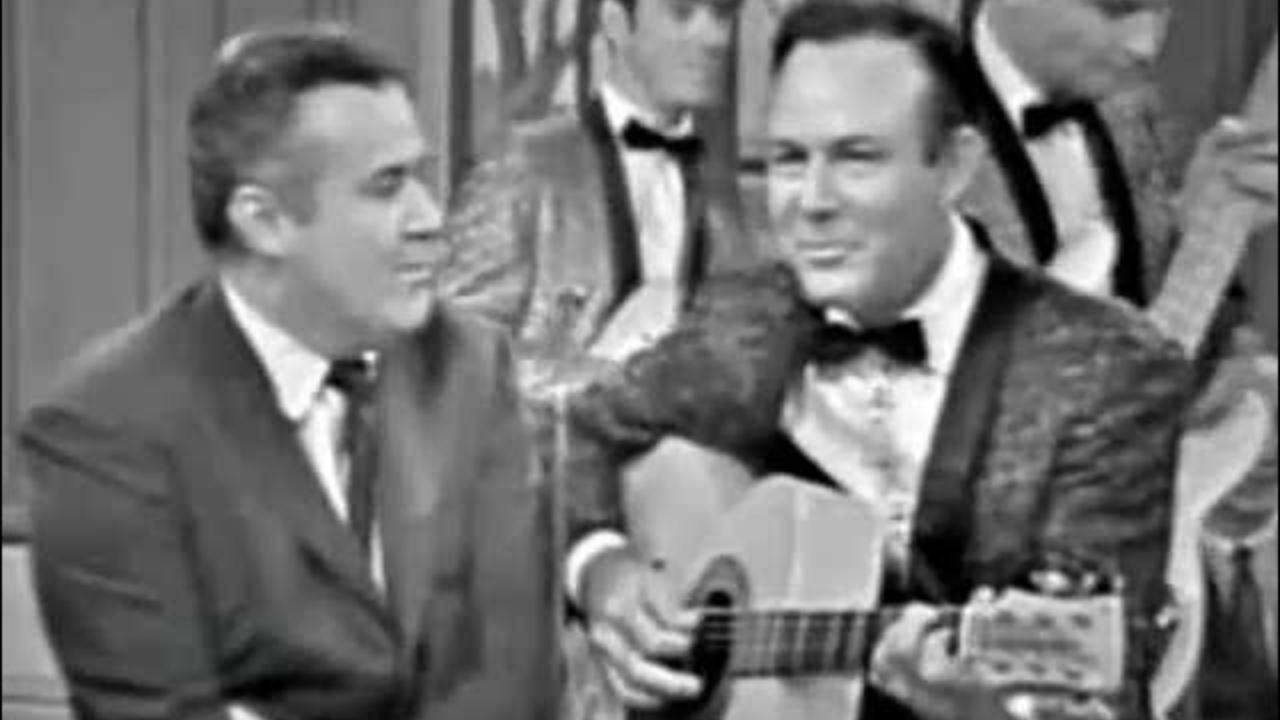About The Song
Background
“I Love You Because” is a timeless country ballad originally written and composed by Leon Payne in 1950. However, it was Jim Reeves’ 1963 recording that catapulted the song to unparalleled fame and enduring popularity. Reeves, often referred to as “Gentleman Jim,” was a renowned country music singer known for his smooth vocals and heartfelt delivery. His version of “I Love You Because” became a signature song, showcasing his vocal prowess and emotional depth.
Released in 1963, the song quickly climbed the charts, becoming one of Reeves’ most successful singles. It reached number one on the Billboard Country chart and also crossed over to the pop charts, solidifying Reeves’ status as a mainstream star. The song’s enduring appeal lies in its simple yet profound message of love and appreciation, resonating with audiences across generations.
Musical Style
“I Love You Because” is a classic example of the traditional country ballad style. The arrangement is relatively simple, featuring a gentle acoustic guitar melody, subtle string accompaniment, and Reeves’ distinctive vocal delivery. The song’s tempo is slow and deliberate, allowing the lyrics to take center stage. Reeves’ voice, characterized by its warmth and sincerity, perfectly complements the song’s emotional tone.
The musical style of the song reflects the era in which it was recorded. The 1960s was a period of significant transition for country music, as the genre was beginning to incorporate elements of pop and rock. However, “I Love You Because” remains firmly rooted in the traditional country sound, showcasing the genre’s enduring appeal.
Lyrics
The lyrics of “I Love You Because” are deceptively simple but profoundly moving. The song explores the complexities of love by focusing on the specific reasons for loving someone. Rather than relying on grand romantic gestures or flowery language, the lyrics offer a down-to-earth and relatable perspective on love.
The song’s refrain, “I love you because you’re the sweetest girl I know, I love you because you’re always there to show, how much you care when things go wrong,” captures the essence of the song’s message. The lyrics highlight the importance of companionship, support, and understanding in a romantic relationship.
By focusing on the everyday qualities of the loved one, the song creates a sense of intimacy and authenticity. The lyrics are relatable to people from all walks of life, as they celebrate the ordinary moments that make up the fabric of love.
Cultural Impact
“I Love You Because” has had a significant cultural impact. It has become one of the most beloved and enduring love songs in the history of country music. Jim Reeves’ recording of the song is considered a classic, and it has been covered by countless artists in various genres.
The song’s popularity has transcended musical boundaries. It has been featured in numerous films, television shows, and commercials, further solidifying its status as a cultural icon. “I Love You Because” has also been used in weddings and other special occasions, serving as a timeless expression of love and devotion.
Moreover, the song’s message of love and appreciation has resonated with audiences of all ages. It has become an anthem for couples, reminding them of the importance of cherishing the simple things in their relationships. The song’s enduring popularity is a testament to its universal appeal and its ability to capture the essence of love in a meaningful and relatable way.
Conclusion
“I Love You Because” is more than just a song; it is a cultural touchstone that has captured the hearts of millions. Jim Reeves’ heartfelt rendition of the song elevated it to iconic status, and its simple yet profound lyrics continue to resonate with audiences today. The song’s enduring popularity is a testament to the power of music to connect people on a deep emotional level.
By celebrating the ordinary moments of love and appreciating the qualities that make relationships special, “I Love You Because” offers a timeless message that transcends generations. The song’s impact on popular culture is undeniable, and its legacy as a beloved and enduring love song is secure.

Leave a Reply